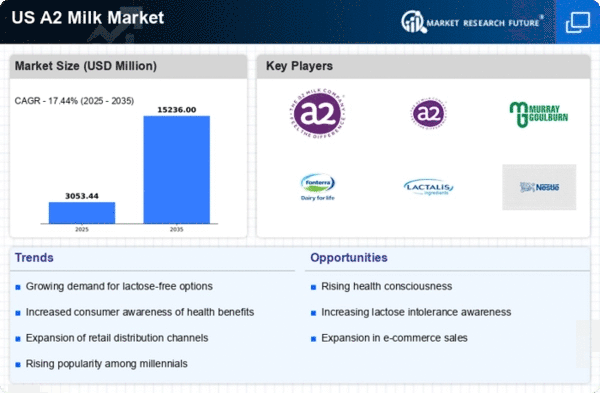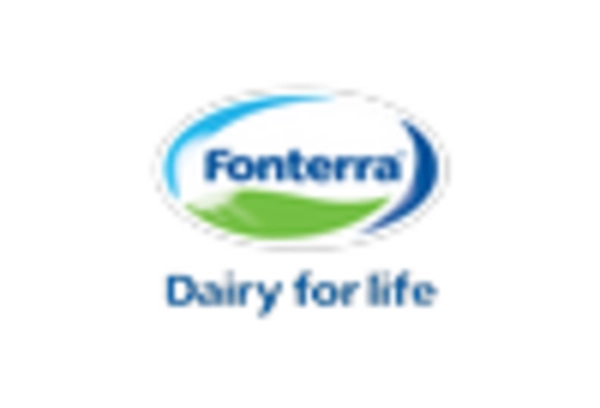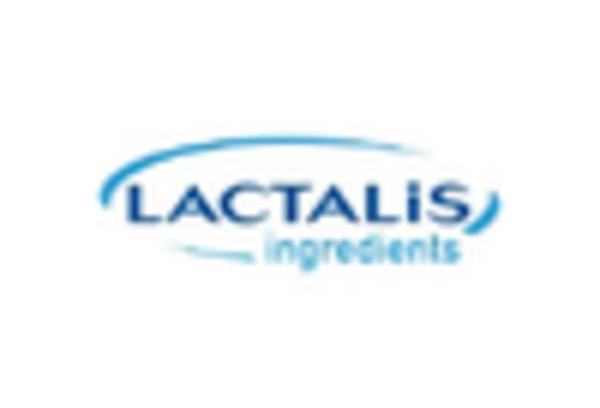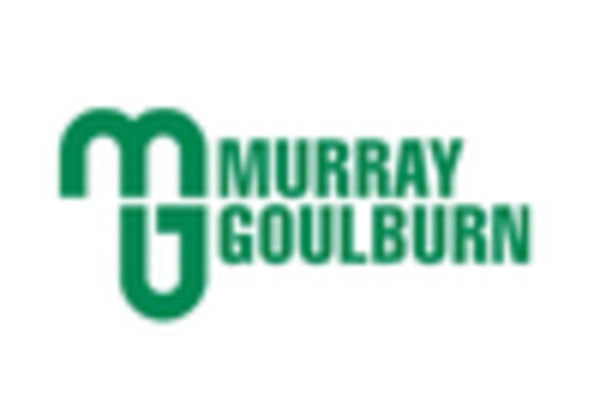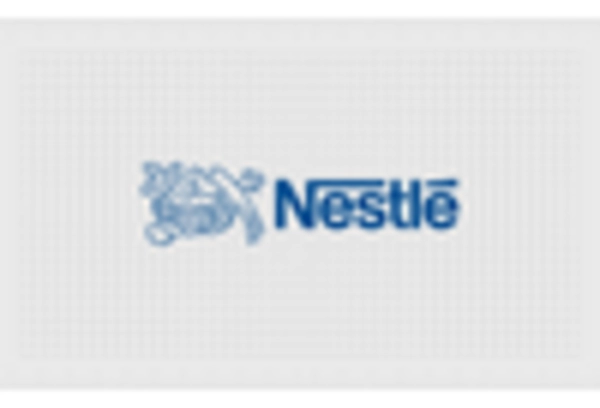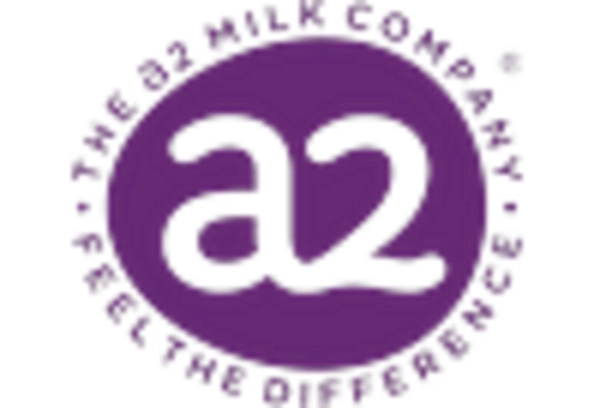Expansion of Retail Channels
The expansion of retail channels is a crucial driver for the a2 milk market. With the increasing availability of a2 milk in various retail formats, including supermarkets, health food stores, and online platforms, consumers have greater access to these products. This trend is particularly relevant in the US, where e-commerce sales of dairy products have been on the rise, accounting for approximately 15% of total dairy sales in recent years. The convenience of online shopping, coupled with the growing trend of home delivery services, is likely to further boost the visibility and accessibility of a2 milk. As a result, the a2 milk market is expected to benefit from enhanced distribution strategies that cater to the evolving shopping preferences of consumers.
Innovative Product Development
Innovative product development is a key driver in the a2 milk market, as companies strive to differentiate their offerings in a competitive landscape. The introduction of flavored a2 milk, lactose-free options, and fortified variants is indicative of the industry's commitment to meeting diverse consumer preferences. This trend is particularly relevant in the US, where the demand for unique and convenient dairy products is on the rise. By expanding their product lines, companies in the a2 milk market are not only attracting new customers but also encouraging repeat purchases from existing consumers. The focus on innovation is likely to play a vital role in sustaining growth and enhancing brand loyalty within the a2 milk market.
Rising Lactose Intolerance Awareness
The increasing awareness of lactose intolerance among consumers is a pivotal driver in the a2 milk market. Studies indicate that approximately 65% of the global population experiences some form of lactose malabsorption, which is particularly prevalent in certain demographics within the US. As consumers become more informed about their dietary needs, the demand for lactose-free alternatives, such as a2 milk, is likely to rise. This trend is further supported by the fact that a2 milk contains only the A2 beta-casein protein, which is easier to digest for those with lactose sensitivity. Consequently, the a2 milk market is witnessing a surge in product offerings tailored to meet the needs of lactose-intolerant consumers, thereby expanding its market share and consumer base.
Increased Focus on Nutritional Benefits
The growing emphasis on nutritional benefits associated with a2 milk is significantly influencing the a2 milk market. Research suggests that a2 milk may offer various health advantages, including improved digestion and reduced inflammation. As consumers become more health-conscious, they are increasingly seeking products that align with their wellness goals. The a2 milk market is responding to this demand by highlighting the unique nutritional profile of a2 milk, which is rich in essential nutrients such as calcium and vitamin D. Furthermore, the market is projected to grow at a CAGR of around 10% over the next five years, driven by the rising consumer preference for healthier dairy options. This focus on nutritional benefits is likely to enhance the appeal of a2 milk among health-oriented consumers.
Consumer Preference for Natural Products
The increasing consumer preference for natural and minimally processed products is driving growth in the a2 milk market. As consumers become more discerning about the ingredients in their food, they are gravitating towards products that are perceived as pure and free from additives. a2 milk, which is marketed as a natural alternative to conventional milk, aligns well with this trend. The market is capitalizing on this shift by promoting a2 milk as a wholesome option that is free from A1 beta-casein, which some studies suggest may be linked to digestive discomfort. This positioning is likely to resonate with health-conscious consumers, thereby enhancing the market's appeal and driving sales.


